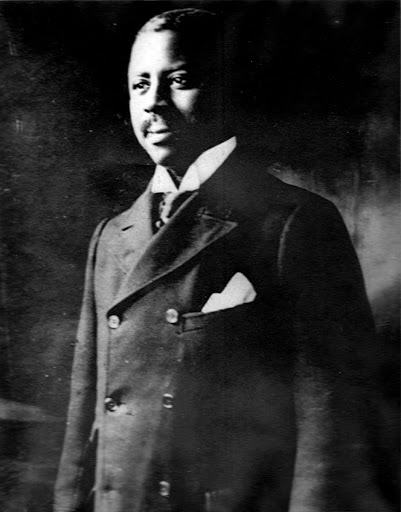In the annals of American history, the narrative of Robert Turner stands as a remarkable testament to resilience, transformation, and the profound impact of enlightenment through faith. Born into slavery, Turner’s life trajectory underwent a radical metamorphosis, thanks in part to the abolitionist efforts of President Abraham Lincoln and the spiritual illumination he found within the Bahá’í teachings. This article endeavors to explore the multifaceted dimensions of Turner’s journey, focusing on how individual experiences of freedom can culminate in a broader understanding of humanity’s interconnectedness.
Robert Turner was born in Virginia circa 1843, a product of an era marked by oppression and systemic discrimination. His early years were characterized by the grim realities of enslavement, encompassing physical bondage and psychological subjugation. However, the historical landscape began to shift dramatically during the mid-19th century, culminating in Lincoln’s Emancipation Proclamation in 1863. This pivotal moment not only liberated enslaved individuals but also illuminated the path toward civil rights and social justice, sowing the seeds for future generations.
Following his emancipation, Turner’s life was accentuated by a passionate pursuit of knowledge and self-actualization. A self-made man, he channelled his energies into education, playing a pivotal role in advocating for African American rights in the post-Civil War era. The pivotal transition from bondage to freedom was not merely a matter of legal status; it heralded a profound shift in his identity and purpose. Turner’s story embodies a twofold quest: the search for personal redemption and the quest for societal transformation.
Central to understanding Turner’s evolution is the influence of the Bahá’í teachings, which offered him an expansive worldview and a framework for personal growth. Emphasizing the oneness of humanity, the Bahá’í Faith promotes the idea that all people, regardless of race or background, are equal and deserve to live harmoniously. Turner’s engagement with these principles was not merely academic; it was a transformative experience that provided him a sanctuary of hope amidst the socioeconomic turmoil of Reconstruction. His intellectual and spiritual awakening led him to embrace ideals of justice, equity, and unity, catalyzing a deeper understanding of his role within the societal fabric.
An essential aspect of Bahá’í principles is the belief in the power of prayer and meditation. Turner reportedly engaged in these practices, which allowed him to reflect on his past adversities while cultivating an inward strength. This spiritual discipline provided him not just solace but also catalyzed his commitment to visionary social reform. The act of internal contemplation became a transformative vehicle that paved the way for his active involvement in community building and social empowerment.
Moreover, Turner’s position as an educator and community leader highlights the profound interplay between personal enlightenment and societal change. He ardently promoted educational initiatives within the African American community, recognizing education as a liberating force. Not only did he seek to enlighten individuals, but he also aimed to shift societal perceptions regarding the capabilities and rights of formerly enslaved people. By championing learning and fostering self-confidence, Turner ignited a sense of possibility among those who had previously been marginalized.
Turner’s commitment to Bahá’í teachings also manifested in his advocacy for racial harmony. He recognized that the fabric of American society was fraught with division, stemming from deep-rooted prejudices and inequalities. His engagement in community activities and his fervent belief in unity served to bridge divides. By embodying the Bahá’í ideal of racial equality, he not only enhanced his own credibility but also became a beacon of hope for aspiring change-makers who sought to dismantle systemic oppression.
This emphasis on unity and collective responsibility resonates profoundly in today’s context as well, where societal strife and divisions often seem insurmountable. Turner emerges as a figure of inspiration by illustrating that personal transformation is inexorably linked to communal upliftment. His life story invites a reflection on the potential for every individual to transcend personal trials and contribute meaningfully to the betterment of society.
In examining Turner’s legacy within the Bahá’í framework, one must also acknowledge the continuing relevance of his teachings in contemporary discussions around equity and justice. The lessons gleaned from his life encourage a collective shift in perspective, urging individuals to transcend narrow self-interests in favor of broader human concerns. Today, as societies grapple with issues of racial inequality, social injustice, and disenfranchisement, Turner’s account serves as a poignant reminder of the enduring power of faith and education as catalysts for change.
Moreover, the lessons imparted by Robert Turner compel a re-examination of how narratives of slavery and freedom are woven into the larger tapestry of American identity. His journey underscores the vital role that personal resilience plays in overcoming adversity while simultaneously pushing boundaries for future generations. In doing so, it sparks an inquiry into the ways in which faith can inspire individuals not only to transcend their circumstances but also to dedicate their lives to holistic societal improvement.
In conclusion, Robert Turner’s life story encapsulates the essence of liberation—not solely from the shackles of physical bondage but also from the confines of societal prejudice. His odyssey from enslavement to enlightenment serves as an inspiring narrative that holds significant lessons for contemporary society. By fostering a broader understanding of universal principles and embracing communal responsibilities, we too can contribute to a world that champions justice, equity, and unity. In celebrating Turner’s legacy, we are invited to cultivate our own paths of enlightenment, thereby enriching humanity as a whole.
